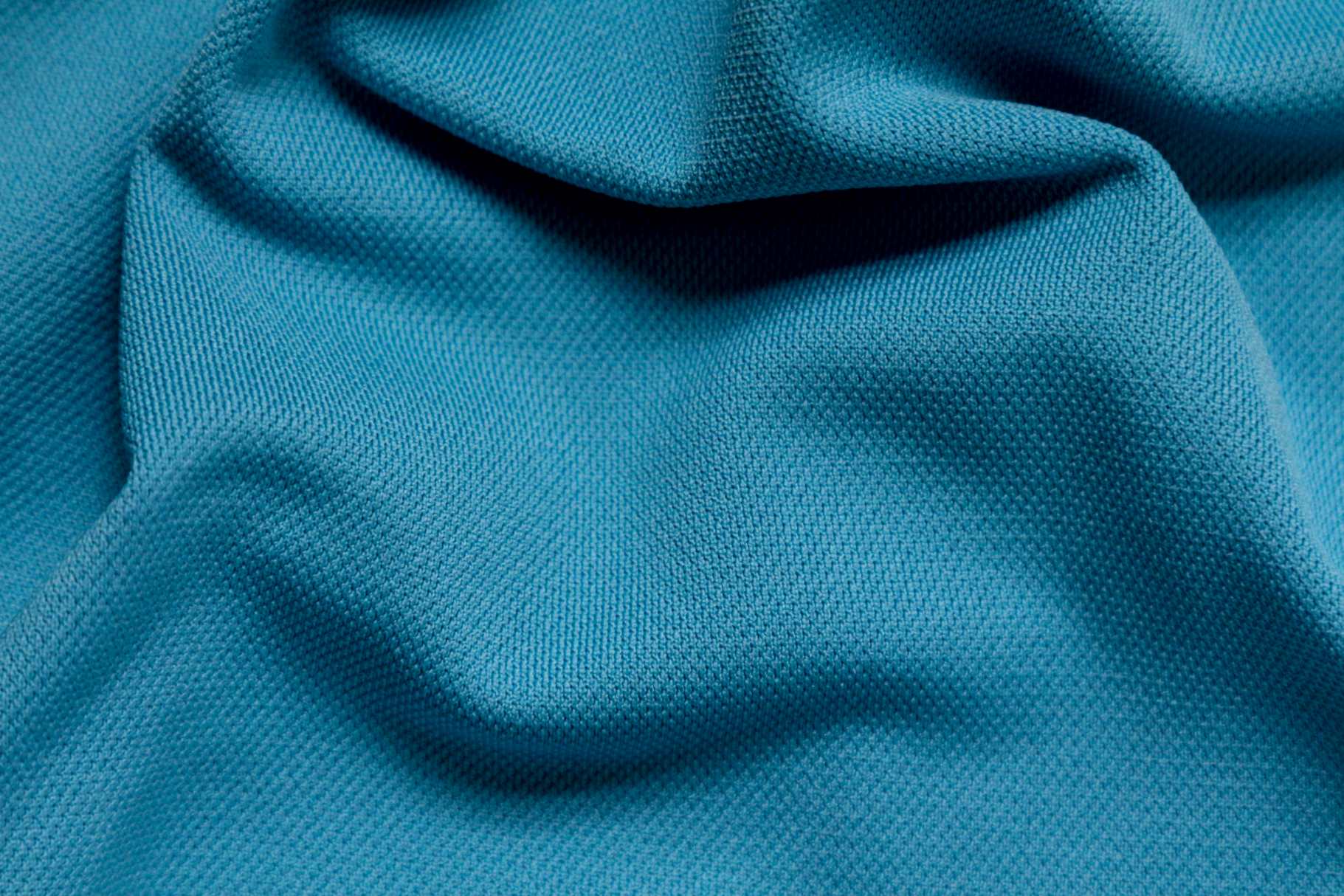
Polyester is a synthetic fabric that has become incredibly popular in the world of fashion and textiles. Known for its durability, versatility, and affordability, polyester is used in various industries, from clothing and accessories to upholstery and bedding. While most of us are familiar with polyester, there are numerous intriguing facts about this fascinating fabric that you might not know. In this article, we will uncover 15 fun facts about polyester that will shed light on its history, production process, and unique characteristics. Whether you’re a fashion aficionado or simply curious about the wonders of textiles, get ready to be amazed by these interesting tidbits about polyester!
Key Takeaways:
- Polyester is a strong, colorful, and low-maintenance synthetic fiber that’s great for clothing, upholstery, and outdoor gear. It’s durable, quick-drying, and resistant to wrinkles and fading, making it a versatile choice for many different products.
- With its ability to be recycled and repurposed, polyester is not only affordable and easy to care for, but also environmentally friendly. It can be blended with other fibers to enhance its properties and is even made from recycled plastic bottles, making it a sustainable choice for various activities and industries.
Polyester is a Synthetic Fiber
Polyester is a synthetic fiber made from petroleum-based products. It is created through a process called polymerization, where molecules are formed by combining chemical compounds. The resulting fabric is durable, wrinkle-resistant, and easy to care for.
Polyester is Versatile
Polyester can be used to create a wide range of products, from clothing and upholstery to car seat belts and home furnishings. Its versatility makes it a popular choice in various industries.
Polyester is Strong and Durable
One of the key characteristics of polyester is its strength and durability. It is resistant to stretching, shrinking, and wrinkling, making it a long-lasting fabric option.
Polyester is Quick-Drying
Unlike natural fibers such as cotton, polyester has low water absorbency. This means that it dries quickly, making it ideal for swimwear, outdoor gear, and active wear.
Polyester is Colorful
Polyester can be easily dyed with vibrant colors, resulting in bright and colorful fabrics. This makes it a popular choice for fashion designers and decorators looking to add a pop of color to their creations.
Polyester is Resistant to Fading
Due to its strong molecular structure, polyester is resistant to fading caused by exposure to sunlight. This makes it a great choice for outdoor furniture and upholstery that will be exposed to the elements.
Polyester is Low-Maintenance
Unlike some natural fibers that require special care, polyester is easy to care for. It is machine washable, quick-drying, and resistant to wrinkles, making it a convenient choice for busy individuals.
Polyester is Wrinkle-Resistant
Polyester is known for its ability to retain its shape and resist wrinkles. This makes it a popular choice for travel clothing and garments that need to look fresh and crisp without the need for ironing.
Polyester is Flame-Resistant
Polyester fabrics can be treated with flame-retardant chemicals or constructed in a way that makes them inherently flame-resistant. This is why polyester is often used in the manufacturing of safety clothing and furnishings.
Polyester is Hypoallergenic
For individuals with allergies or sensitivities to certain fibers, polyester can be a suitable alternative. It is less likely to cause allergic reactions and does not attract common allergens like dust mites.
Polyester is Affordable
Compared to some natural and synthetic fibers, polyester is a cost-effective option. Its affordable price point makes it accessible to a wide range of consumers.
Polyester is Environmentally Friendly
Polyester can be recycled and repurposed, reducing its impact on the environment. Additionally, its durability and long lifespan contribute to its eco-friendly qualities.
Polyester Blends are Popular
Polyester is often blended with other fibers, such as cotton or wool, to enhance its properties. These blends offer the benefits of both fibers, creating fabrics that are comfortable, durable, and easy to care for.
Polyester can be Eco-Friendly
New advancements in technology have made it possible to produce polyester from recycled plastic bottles. This helps reduce waste and decrease the demand for new petroleum-based materials.
Polyester Clothing is Preferred for Certain Activities
Polyester’s moisture-wicking properties make it a popular choice for athletic wear and outdoor activities. It helps to keep the body cool and dry by drawing sweat away from the skin.
Conclusion
Polyester is a fascinating fabric with a rich history and many interesting facts behind it. From its invention to its rise in popularity, polyester has become a staple in the fashion and textile industry. It’s known for its durability, versatility, and affordability, making it a preferred choice for many consumers. The fiber has come a long way since its early days and continues to evolve with advancements in technology. Whether you love it or loathe it, there is no denying the impact polyester has had on our lives. So the next time you slip into a polyester garment, you can appreciate the fun facts and stories woven into the fabric.
FAQs
1. What is polyester?
Polyester is a synthetic fabric made from a polymer called polyethylene terephthalate (PET). It is created through a chemical process that involves the combination of various chemicals and heat.
2. Is polyester a natural fabric?
No, polyester is not a natural fabric. It is a man-made synthetic fabric.
3. Is polyester durable?
Yes, polyester is known for its durability. It can withstand regular wear and tear and is resistant to wrinkles, stretching, and shrinking.
4. Is polyester breathable?
Polyester is not as breathable as natural fibers like cotton or linen. It tends to trap heat and moisture, which can make it less comfortable in warmer climates.
5. Can polyester be recycled?
Yes, polyester can be recycled. It can be melted down and transformed into new fibers, reducing the environmental impact of discarded polyester products.
6. How do I care for polyester garments?
Polyester garments are easy to care for. They can be machine washed and dried, and they are resistant to wrinkles, so ironing is usually not necessary.
7. Can polyester cause skin irritations?
Some people may be sensitive to polyester and experience skin irritations. It is always recommended to check the fabric content and potential allergies before wearing polyester garments.
8. Is polyester eco-friendly?
Polyester production has an environmental impact due to the use of chemicals and energy. However, recycling polyester and reducing waste can help reduce its overall environmental footprint.
9. Can polyester be dyed?
Yes, polyester can be dyed. It is a versatile fabric that can hold vibrant colors and resist fading.
10. Can I find polyester in different textures?
Yes, polyester can be manufactured in various textures such as smooth, silky, or textured finishes, depending on the desired look and feel of the fabric.
Was this page helpful?
Our commitment to delivering trustworthy and engaging content is at the heart of what we do. Each fact on our site is contributed by real users like you, bringing a wealth of diverse insights and information. To ensure the highest standards of accuracy and reliability, our dedicated editors meticulously review each submission. This process guarantees that the facts we share are not only fascinating but also credible. Trust in our commitment to quality and authenticity as you explore and learn with us.


